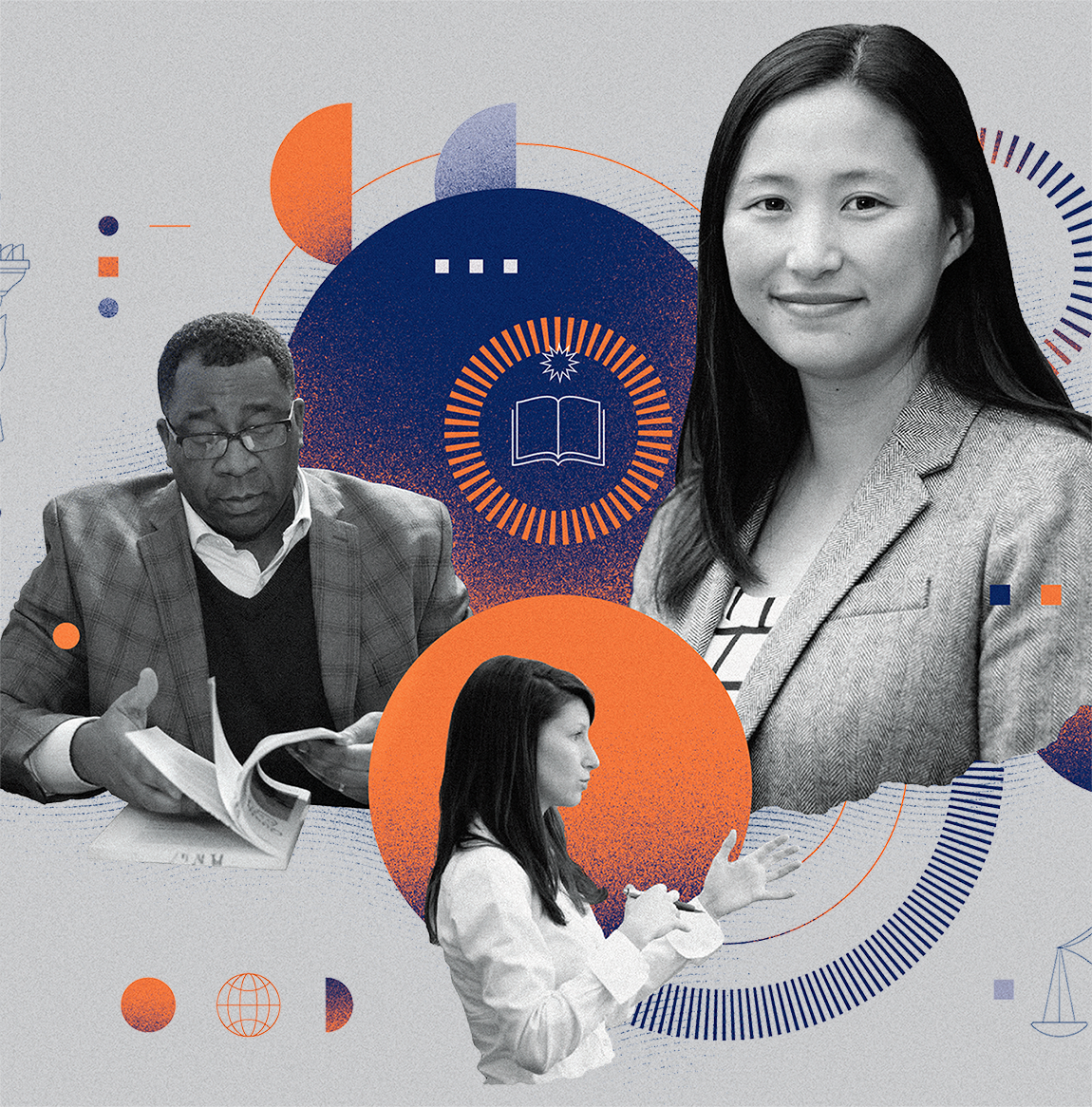The search for truth is powered by the creation of knowledge. It is through the rigor of collecting and analyzing data, and testing and refining our hypotheses, that the truth empowers our progress.
“Imagine if each generation had to rediscover a polio vaccine or reinvent automobiles or airplanes,” says Dean Solomon. “Our ability to evolve as a species is enabled by our ability to develop knowledge, to share knowledge, and to build upon previous knowledge investments to contribute to future generations.”
Williams’ research investigates how people perceive and address problems in their own communities—he takes the laboratory to the people, as it were. Gabrielle Adams, on the other hand, brings people to the laboratory. As a social psychologist, Adams leads the Applied Public Policy and Leadership Experiments (APPLE) lab, which designs experiments examining interpersonal dynamics. In the lab, she translates real-world dilemmas into research questions and carefully conducted behavioral studies.
Much of Adams’ research focuses on ethical transgressions. “When we run lab experiments, we set up a conflict in the lab to both observe how people respond and look at their perceptions of wrongdoing,” she says. For example, one subject might be given a choice of tasks and choose an easy, pleasant assignment, leaving another subject with a boring, tedious one. The participants are then asked about their perspectives on the process.
Another aspect of Adams’ research involves investigating wrongdoing from a different angle, by looking at public perceptions of the apologies that follow corporate transgressions. “At a critical time for a corporation’s public image, a CEO might be tempted to present a positive, upbeat affect, when the opposite is more effective,” Adams says. “We looked at CEO apologies and found that in those with sadness, CEOs were perceived to be more sincere.”
Across the board, her research yields insights that construct a more complex and robust picture of the nature of human interactions. Adams refers to herself as an “experimentalist”; in all areas of her research, she is committed to the kind of rigorous, in-depth exploration that leads to the creation of new knowledge. “Time and again I am surprised by how strong the psychological roles are that we inhabit. It has guided my research over the years,” Adams says. “I’m interested in how the psychological roles that we occupy—whether gift giver or receiver or wrongdoer or victim— really shape the way that we see the world.”
While Adams’ research looks at how public perceptions are vital to corporate leaders, her colleague Christine Mahoney’s research explores the role perceptions play at the opposite end of the business spectrum: refugees who are entrepreneurs.
As director of Social Entrepreneurship @ UVA, an initiative led by the Batten School, Mahoney has long advocated for entrepreneurial effort as a means of positive change. Her research has taken her to areas of conflict across the world to explore the challenges facing people who are forcibly displaced. Many of these people must live for years in refugee camps. From Colombia to Thailand to Somalia and elsewhere, Mahoney discovered entrepreneurs everywhere she went.
“In camp after camp, I saw refugees and internally displaced people who had lost family members and seen incredible horrors,” she says. “But it’s really amazing. Everywhere you look, they start businesses in these camps. You see little restaurants; you see hairdressing shops; you see barbershops and businesses selling school supplies.”
Although creating businesses under such conditions is challenging, Mahoney notes that more than 40% of the founders of the Fortune 500 companies were immigrants, refugees, or their children. “Historically, refugees are one of the highest entrepreneurial categories,” she says. “Resilience is central to their experience. When you’ve nearly lost your life escaping a war, pitching in front of an investor isn’t the worst thing in the world.”
Still, overall, refugees have a public perception problem. Mahoney saw this firsthand in the camps she visited: Often the small businesses that spring up must operate in the black market since host countries typically fear competition with local enterprises and bar refugees from starting businesses.
Rather than viewing displaced people as a burden and a threat, Mahoney says, we should recognize them as an asset. Instead of forcing refugees into unending aid dependency through work restrictions, investments and market forces could be brought to bear in win-win relationships that benefit both refugee communities and host societies, Mahoney proposes in her 2016 book, Failure and Hope: Fighting for the Rights of the Forcibly Displaced.
“We need to rethink how we address the global refugee crisis,” Mahoney says. “If you’re displaced today, you’ll be displaced for 17 years, on average. It’s not a temporary thing, but our response has been temporary food and temporary shelter, with the expectation that people are going to go home. But their home is often a failed state. People can’t go home.”
When one public policy approach has held sway for decades without making progress, we can leverage the power of knowledge— facilitated by extensive research—to motivate change.
“One of the things you have the luxury of doing as a professor is stepping back, thinking big and researching in a really broad way,” Mahoney says. “I researched every protracted displacement crisis in the world and then I did fieldwork in seven conflict zones. All of that showed that what we’ve been doing for the past 60 or 70 years is not working, and it’s not going to start working. We need to do something different.”
